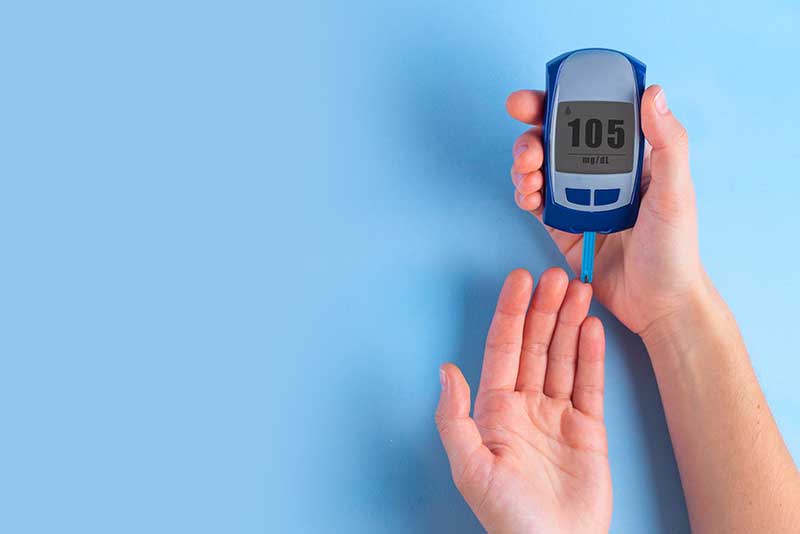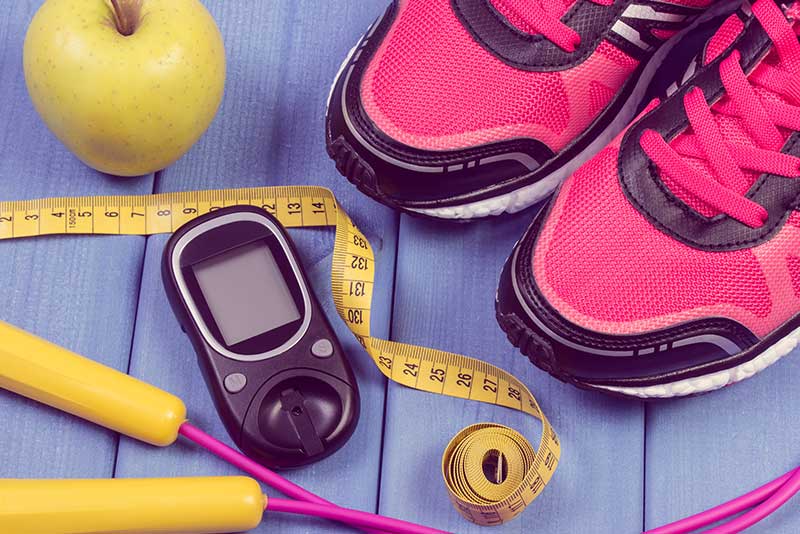Diabetes is a serious metabolic disorder that accompanies severe life-threatening complications and also results in permanent disability in severe cases. Sadly, it has become the most common disease nowadays due to an unhealthy and sedentary lifestyle. It is a metabolic disorder in which our body is not able to effectively use insulin or is not able to produce it. Insulin is a hormone secreted by the pancreas gland that helps in regulating the blood glucose level by moving it into the body cells for energy or to be stored. If you are suffering from diabetes, your body is unable to use that glucose, which results in high blood sugar levels in the bloodstream. In severe cases, this high blood sugar can cause permanent damage to your eyes, blood vessels, heart, kidneys, brain, etc.
Although diabetes is not curable, you can manage it with medication and lifestyle modification. So if you are newly diagnosed, or have been fighting with it, or just want to educate yourself, then you have come to the right place.
Types of Diabetes
Here is what you should know about different diabetes types. Diabetes has multiple types and each type has a different cause, but each of them shares a commonality, which is an inability to control blood glucose levels.
1. Types 1 Diabetes

In Type 1 diabetes, the body cells are unable to produce enough insulin as the Beta-cells of the pancreas are destroyed by the immune cells of the person. Hence, it is also an autoimmune disorder. In that case, the body won’t have enough insulin to regulate blood glucose levels, which leads to high blood sugar levels. Diabetes Type 1 occurs generally much earlier in life, i.e. in children, but it may occur later in age. There are only 5 to 10 percent of people who have type 1 diabetes.
2. Type 2 Diabetes

It is also known as Diabetes Mellitus. In Type 2 diabetes, the body is unable to use the insulin present in the body effectively. In this condition, the pancreas is producing enough insulin but the body is not using it properly due to insulin resistance, which forces the pancreas gland to overwork to balance the blood sugar level. When the state of excess glucose in the bloodstream persists for a long time, it results in type 2 diabetes. Generally, Type 2 diabetes occurs in people who are overweight or obese and above 30. However, Diabetes Type 2 has become more common nowadays, especially in children and young adults due to sedentary and unhealthy lifestyles.
3. Gestational Diabetes

Although this is a scary diagnosis, gestational diabetes is the one that is curable. Gestational diabetes happens due to hormonal changes in the body during pregnancy or insufficient insulin. During pregnancy, the placenta produces the hormones that make the women’s body cells less susceptible to insulin, which leads to high blood sugar. Women who gained a lot of weight during their pregnancy are more prone to gestational diabetes. The good thing is that this type of diabetes is temporary and goes away after pregnancy, but this is not always the case.
4. Prediabetes

Prediabetes has no clear symptoms, but generally, it happens when your blood glucose level is higher than normal. It is the stage before the actual development of Type 2 diabetes. The good news about prediabetes is that if diagnosed early, it can be curable through diet and lifestyle modifications.
Adding any physical activity, whether it is running or other exercises, to your daily routine can reduce your chances of developing Type 2 diabetes.
You have to change your eating habits, such as avoiding fried food and sweets and emphasizing healthy eating with lots of vegetables and low-carb food. It would be best for you to keep your doctor in the loop.
Symptoms of Diabetes
Some common diabetes symptoms are:
- Increase in hunger and thirst
- Frequent urination
- Loss of weight
- Injuries and sores take a lot of time to heal.
- Feeling tired
- Blurry vision
Complications with Diabetes
Generally, people who are suffering from diabetes are more prone to developing other complications if their blood glucose levels are not controlled. Diabetes has some severe effects on blood vessels that can lead to stroke and heart disease. In most cases, these damages are irreversible. Keeping your blood sugar levels in check is the only key to preventing these complications, such as kidney disorders, retinopathy (diabetic eye disease), and neuropathy.
Maintaining a healthy lifestyle such as managing your cholesterol levels and blood pressure reduces your risk of heart attack and stroke. It is best to check your blood sugar level and urine test on a regular basis so that you can keep a check on these complications. Other important diabetes signs include numbness or pain in your feet.
Treatment and Prevention of Diabetes
When it comes to managing and preventing Type 2 diabetes, the key is to make healthy lifestyle changes. Include some kind of physical activity in your routine and make healthy changes in your diet. Include more vegetables, reduce your carbohydrate intake, and avoid sugar and deep-fried food. Apart from that, keep your doctor in the loop and take your medication regularly.
Type 1 Diabetes
People suffering from Type 1 diabetes have to depend on insulin for a lifetime since the body is not able to produce enough insulin. Take your medication diligently and keep something sweet on hand as insulin injections can drop your blood sugar rapidly, which is known as insulin shock.
Type 2 diabetes
The most important treatment for people dealing with Type 2 diabetes is incorporating healthy lifestyle changes (diet and exercise). If your diabetes is not manageable with these changes then medication will be required.
Bottom Line
There are many triggers such as genetics and lifestyle factors that can lead to diabetes. It is a lifelong condition that can lead to many severe complications if not controlled. But the good thing is you can manage your symptoms by incorporating healthy changes into your routine and following up with medications.

Priyanka Khurana Goyal is a prominent Indian figure renowned for her diverse accomplishments and contributions across various fields.. Read more



